“Woe unto You, … Hypocrites”
Matthew 21–23; John 12:1–18
LDS manual: here
Purpose
To help readers to avoid hypocrisy, and to point out the kind of hypocrisy that the church deals in.
Reading
This lesson is about hypocrisy, and that really is a terrible thing. Pretending to be one way while being another way leaves you feeling split down the middle. I think a lot of us know what this is like.
And I don’t want to say that people in the LDS Church are a bunch of hypocrites. It would be hypocritical of me to say so. We all have trouble living up to the ideals we espouse, and our implementation won’t always be perfect. The best we can do is keep trying to improve, and to try to make the inside match the outside. Ironically, this task has been much easier for me since leaving the church.
Here’s why: as a kid in a Mormon family, you kind of get your moral system handed to you. How to live, what’s right and wrong — that’s what church leaders are for, to tell you that stuff. Morality is for them to know, and for you to find out, like in General Conference. You’re encouraged to study things out in your own mind, and get “personal revelation”. But if you get a different answer than the one you’re supposed to get — well, that doesn’t get you too far in a church where they tell you what kind of underwear to put on, and where wearing a blue shirt instead of a white one is considered daring at best and an act of rebellion at worst.
So you get this moral code issued to you at birth. It’s not negotiable, and you’re constantly reminded that obedience is the first law of heaven. But sometimes the code doesn’t make sense, and maybe it doesn’t really fit you. You notice that other people have to think about their moral choices, and they seem to do mostly fine, even though their code differs from yours. And your code excludes a lot of normal stuff that isn’t so bad, but you’re supposed to feel bad when you do it.
What’s a young person in a Mormon setting to do, besides obey the phoney moral code? There are basically three choices:
- Rebel. Make your own code. Not the favoured option for someone who wants to be a “good kid”.
- Give up. I saw a lot of kids do this. Eventually you forget what was in your own heart.
- Sneak. This was very popular, too. It’s a way of keeping peace with the adults, but still having some latitude to live your own way. But it turns you into a hypocrite. And then when you hear lessons in church about the danger of hypocrisy, you feel bad for engaging in that pattern of behaviour. But you might not realise how the imposition of this artificial and nonsensical moral code contributed to your behaviour.
Ask: What is hypocrisy?
My computer’s dictionary defines hypocrisy as: the practice of claiming to have higher standards or more noble beliefs than is the case.
By this definition, the LDS Church commits a lot of hypocrisy of its own.
- LDS leaders work tirelessly in the service of bigotry, working to deny the validity of the relationships of LGBT people, and bemoaning the consequences if such marriages have legal recognition. But then they decry the lack of tolerance afforded to their bigotry — moaning that for progressives, tolerance is a “one-way street”. How to respond to this? My response is that it’s hypocritical for them to renounce tolerance by persecuting LGBT folks, and then to demand tolerance when it’s convenient for them — especially when they intend to use such tolerance… to promote intolerance.
- It claims to have the standard of truth against which all others can be evaluated. But as we’ve seen in lessons, its own teachings — on evolution, the history of the earth, and (as we’ll see next year) the origins of the native peoples of the Americas — are demonstrably false. They teach that the Book of Mormon is “the most correct book upon the face of the earth”, when it is actually not even a correct book. In addition, the church promotes a counterfeit method of “knowledge from feels” that does not lead to truth. It does this while calling out “counterfeits” of its own — counterfeit families, counterfeit belief systems, and so on.
- It demands honesty from its members — the temple recommend interview asks if a member is “honest in their dealings” with other people — while the church itself has always been less than forthcoming about its own history and origins. Facts have been routinely dismissed as “anti-Mormon lies”, and then when the church has tried to make a belated show of clearing the air, it quietly publishes anonymous (and therefore retroactively deniable) essays, showing some of the facts that will reflect best on the church. Members are instructed not to tell potential converts about its strange and potentially off-putting temple ceremonies.
Now where did I get the idea that it was okay to shade the truth and present oneself in the most positive light? How easily I slipped into it, and how long I kept that up!
I want to explain how I try to avoid hypocrisy. I’m a university lecturer and a presenter on my language podcast Talk the Talk, and so there’s a temptation for me to want to be the Smart Guy. But I’m not, not really. I feel like I hardly know anything! And pretending I do is really destructive. When you pretend to know more than you do, it keeps you from learning more. And then it’s all about you and reputation and protection, and not about what’s true.
My advice: The antidote to hypocrisy is humility. Intellectual humility is not only an appealing quality in a thinker, it’s repulsive when it’s absent. So here are my tips.
- Say “I don’t know”. We sometimes get allergic to saying “I don’t know” in academia. But that’s something that you have to say! Saying “I don’t know” is the beginning of knowledge. But the next thing out of your mouth should be, “How can we find out?” or “How would we know the right answer if we saw it?”
- When you’re wrong, cheerfully admit it, and update. No one is going to get it right all the time. And just about everything we think is true is going to be a little bit wrong. There’s no shame in admitting that. I actually love it when someone can tell me when I’m wrong. That means I don’t have to believe that wrong thing anymore! What a great thing! And if I know people are able to get back to me about mistakes, it means the feedback system is working, and that means I probably got everything else right. Right?
Here’s a recent episode of Talk the Talk where I corrected a mistake, and used it as a springboard for further discussion. Have a listen.
Main ideas for this lesson
Mary and the ointment
At the start of this lesson, Jesus is eating with friends. Then things get weird. Right in the middle of dinner, Mary starts anointing.
John 12:2 There they made him a supper; and Martha served: but Lazarus was one of them that sat at the table with him.
12:3 Then took Mary a pound of ointment of spikenard, very costly, and anointed the feet of Jesus, and wiped his feet with her hair: and the house was filled with the odour of the ointment.
I’m trying to imagine what this would have been like, if this happened at a dinner with friends. One of the guests starts rubbing something on another guest’s feet, and rubbing their hair all over them. I’m thinking ‘awkward, inappropriate, and uncomfortable’.
John 12:4 Then saith one of his disciples, Judas Iscariot, Simon’s son, which should betray him,
12:5 Why was not this ointment sold for three hundred pence, and given to the poor?
12:6 This he said, not that he cared for the poor; but because he was a thief, and had the bag, and bare what was put therein.
Apparently John could read minds. This must be what they call the “gift of discernment”.
The LDS lesson manual says:
Mary’s actions were criticized by Judas. What did he say should have been done with the ointment? (See John 12:4–5.) How was Judas a hypocrite?
Because people who say they’re concerned about the poor are hypocrites! That means that a hypocrite probably created this meme:
and this one:
and this one.
Pointing this out doesn’t sound hypocritical to me — it sounds like a fairly valid criticism.
Anyway, what’s Jesus’ response to Judas? Well, that you’re always going to have poor people.
John 12:7 Then said Jesus, Let her alone: against the day of my burying hath she kept this.
12:8 For the poor always ye have with you; but me ye have not always.
Jesus saith: Poverty is an intractable social problem, even if you’re an all-powerful being. Embrace inevitability, and don’t spare the ointment!
Think I’m being unfair? Nope — this idea is used by political conservatives to justify poverty.
Despite a significant rise in income inequality in Texas, Gov. Rick Perry (R) is arguing that it’s not something the state ought to be worried about.
“We don’t grapple with that here,” Perry told The Washington Post in a recent interview, while acknowledging that the state’s richest residents have seen the greatest spike in earnings.
“Biblically, the poor are always going to be with us in some form or fashion,” he added, an apparent reference to Mark 14:7. While Perry takes the message from the Bible to mean poverty is hopeless and therefore not worth grappling with, Jesus Christ was actually delivering a different lesson: “For ye have the poor with you always, and whensoever ye will ye may do them good,” the Son of God advises in the King James version of the Bible.
Triumphal entry
Over to Matthew. You know Matthew, right? He’s the one who seizes onto everything Jesus does, and claims it’s a fulfilment of Old Testament prophecy. To which I’d respond: Prophecies are easy to fulfil when you know about them.
Except sometimes he gets it wrong. Here’s a passage in Zechariah that Matthew claims Jesus fulfils:
Zechariah 9:9 Rejoice greatly, O daughter of Zion; shout, O daughter of Jerusalem: behold, thy King cometh unto thee: he is just, and having salvation; lowly, and riding upon an ass, and upon a colt the foal of an ass.
There’s a literary device in the Old Testament called parallelism, where things get repeated twice. It sounds nice, and gives the passage some heft.
We see this kind of thing in Isaiah 2:3.
…for out of Zion shall go forth the law,
and the word of the LORD from Jerusalem
Or Amos 5:24.
But let judgment run down as waters,
and righteousness as a mighty stream.
So notice the parallelism in Zechariah: he starts with
Rejoice greatly, O daughter of Zion;
shout, O daughter of Jerusalem:
and finishes with
riding upon an ass,
and upon a colt the foal of an ass.
Except that Matthew somehow misses the parallelism. He says that Jesus was actually riding two animals at the same time, an ass and a colt.
Matthew 21:1 And when they drew nigh unto Jerusalem, and were come to Bethphage, unto the mount of Olives, then sent Jesus two disciples,
21:2 Saying unto them, Go into the village over against you, and straightway ye shall find an ass tied, and a colt with her: loose them, and bring them unto me.
21:3 And if any man say ought unto you, ye shall say, The Lord hath need of them; and straightway he will send them.
21:4 All this was done, that it might be fulfilled which was spoken by the prophet, saying,
21:5 Tell ye the daughter of Sion, Behold, thy King cometh unto thee, meek, and sitting upon an ass, and a colt the foal of an ass.
21:6 And the disciples went, and did as Jesus commanded them,
21:7 And brought the ass, and the colt, and put on them their clothes, and they set him thereon.
That’s some fancy riding, Jesus!
Palm Sunday – Good Friday Conflict
The always-comprehensive kyroot points out a plot hole in this story.
Jesus is adored and worshipped as a King as he enters Jerusalem on Palm Sunday. He then proceeds to work miracles, heal the sick, and demonstrate his supreme wisdom, making him even more a figure for adulation. But five days later, without explanation, he is abruptly hated so much by his own people that, given a chance to have him released, they chose to free a common criminal instead. There is something seriously wrong with this story.
God hates figs
Here’s one of the truly bizarre stories about Jesus.
Matthew 21:18 Now in the morning as he returned into the city, he hungered.
21:19 And when he saw a fig tree in the way, he came to it, and found nothing thereon, but leaves only, and said unto it, Let no fruit grow on thee henceforward for ever. And presently the fig tree withered away.
21:20 And when the disciples saw it, they marvelled, saying, How soon is the fig tree withered away!
21:21 Jesus answered and said unto them, Verily I say unto you, If ye have faith, and doubt not, ye shall not only do this which is done to the fig tree, but also if ye shall say unto this mountain, Be thou removed, and be thou cast into the sea; it shall be done.
Mark adds that it wasn’t even the time for figs to be ripe.
That’s some psychopathic behaviour there. You can take Jesus out of the Yahweh, but you can’t take Yahweh out of Jesus. Or something.
You should check out this video, because it really is quite funny.
Parable of the marriage feast
Speaking of psychosis, Jesus tells a great story about how his father will kill loads of people at the last day.
Matthew 22:1 And Jesus answered and spake unto them again by parables, and said,
22:2 The kingdom of heaven is like unto a certain king, which made a marriage for his son,
22:3 And sent forth his servants to call them that were bidden to the wedding: and they would not come.
22:4 Again, he sent forth other servants, saying, Tell them which are bidden, Behold, I have prepared my dinner: my oxen and my fatlings are killed, and all things are ready: come unto the marriage.
22:5 But they made light of it, and went their ways, one to his farm, another to his merchandise:
22:6 And the remnant took his servants, and entreated them spitefully, and slew them.
Okay, well, killing people is not good. But really, the only thing that most people did wrong in this story is not going to a party.
Matthew 22:7 But when the king heard thereof, he was wroth: and he sent forth his armies, and destroyed those murderers, and burned up their city.
Whoa! Disproportionate response, God! I wouldn’t destroy a whole city. About the most I’d do is unfriend someone.
Matthew 22:8 Then saith he to his servants, The wedding is ready, but they which were bidden were not worthy.
22:9 Go ye therefore into the highways, and as many as ye shall find, bid to the marriage.
22:10 So those servants went out into the highways, and gathered together all as many as they found, both bad and good: and the wedding was furnished with guests.
22:11 And when the king came in to see the guests, he saw there a man which had not on a wedding garment:
22:12 And he saith unto him, Friend, how camest thou in hither not having a wedding garment? And he was speechless.
He was like, “I was out on the highway, and someone brought me here. I don’t even know anybody.”
Matthew 22:13 Then said the king to the servants, Bind him hand and foot, and take him away, and cast him into outer darkness, there shall be weeping and gnashing of teeth.
22:14 For many are called, but few are chosen.
Whoa again! Outer darkness is pretty harsh for just having the wrong garment on.
So there it is. If you don’t believe in him, God is going to kill you (perhaps symbolically?). And if you do believe, but you have on the wrong garment (perhaps symbolically, perhaps actual garments), it’s OD for you.
This is a good example of something I’ve been mentioning during our New Testament year: People think Jesus is all about the love, but really, he’s the same old psychopath that Jehovah was. Obviously views on the Trinity differ, but if you were looking for evidence that God the Father and Jesus were the same person, all you’d have to do is show them the terrible scriptures from the OT, and then these scriptures from the NT, and you’d have to admit, “Yep, that’s totally the same crazy angry guy.”
Render unto Caesar
Here’s another area where some churches show more than a little hypocrisy. Jesus is having another bash with the Pharisees. They say:
Matthew 22:17 Tell us therefore, What thinkest thou? Is it lawful to give tribute unto Caesar, or not?
22:18 But Jesus perceived their wickedness, and said, Why tempt ye me, ye hypocrites?
22:19 Shew me the tribute money. And they brought unto him a penny.
22:20 And he saith unto them, Whose is this image and superscription?
22:21 They say unto him, Caesar’s. Then saith he unto them, Render therefore unto Caesar the things which are Caesar’s; and unto God the things that are God’s.
22:22 When they had heard these words, they marvelled, and left him, and went their way.
Good call, Jesus. Religious figures should be giving Caesar his due, and in our day this means paying tax.
Currently, religions are tax-exempt. When churches don’t pay tax, the rest of us have to pay their share. That means we’re forced to support religions we don’t even believe in. Lately, religious organisations have been screaming because they’re being forced to kick in for employees’ birth control. They argue that they shouldn’t have to pay for things that run counter to their beliefs. But when it comes to the rest of us funding churches contrary to our belief, somehow it doesn’t rate a mention. Talk about hypocritical!
And this is way bigger that the relatively trifling amounts for contraception. How much is this costing us?
April 29, 2006: Tax exemptions to Australian churches are costing federal, state and local governments more than $500 million a year, new figures show.
Half a billion dollars.
That’s Australia. How about the USA? Better sit down.
While some people may be bothered by the fact that there are pastors who live in multimillion dollar homes, this is old news to most. But here is what should bother you about these expensive homes: You are helping to pay for them! You pay for them indirectly, the same way local, state, and federal governments in the United States subsidize religion — to the tune of about $71 billion every year.
Churches are businesses. They should pay taxes like every other business. If they do charitable work, fine. Treat that like any other business that does charity work. But letting them get away without paying their fair share hurts all of us.
Compulsory love
Finally, Jesus talks about the first and great commandment.
Matthew 22:35 Then one of them, which was a lawyer, asked him a question, tempting him, and saying,
22:36 Master, which is the great commandment in the law?
22:37 Jesus said unto him, Thou shalt love the Lord thy God with all thy heart, and with all thy soul, and with all thy mind.
22:38 This is the first and great commandment.
22:39 And the second is like unto it, Thou shalt love thy neighbour as thyself.
22:40 On these two commandments hang all the law and the prophets.
Christopher Hitchens pointed out that the commandment to love someone is a horrible commandment.
What is it like, I’ve never tried it, I’ve never been a cleric, what is it like to lie to children for a living and tell them that they have an authority, that they must love—compulsory love, what a grotesque idea—and be terrified of it at the same time. What’s that like? I want to know.
I’ll tell. Having to love an absent father figure who knows your thoughts and can sentence you to eternal isolation is a terrible emotional ordeal. You have to read about how he’s killed those who didn’t obey him, and you have to try to admire that — to love it. It can’t be done without warping a person’s idea of what love is.
Love is a great thing, and yet commanding love is twisted. You can’t command someone to love, especially not to love everyone. It may not be appropriate or helpful to love everyone, including people who are doing you harm. If there’s contact with abusive people, what may be required is to cut off contact and get away from them before they drain you. This is okay to do.
That was quite a lesson. Until next week, be well, and I hope you have a match between the way you present and the way you are.
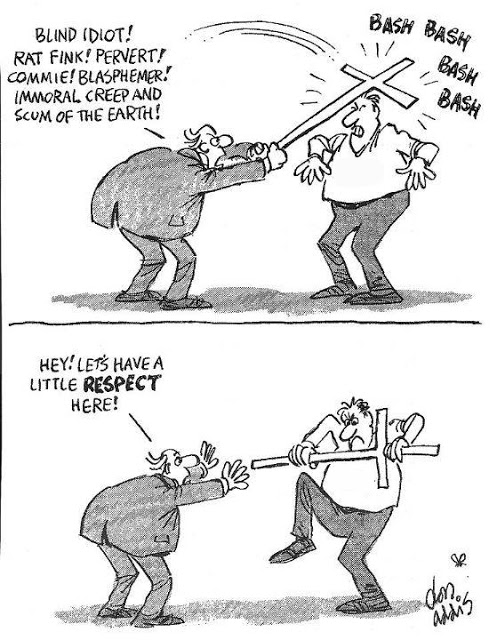

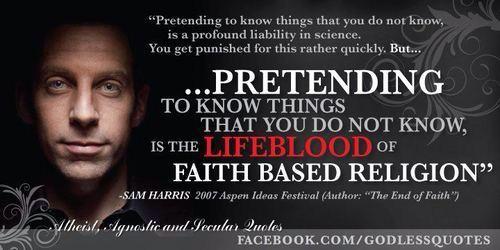






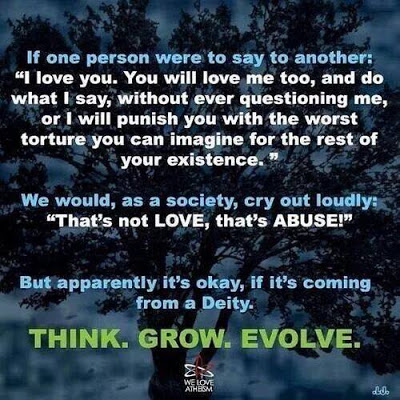
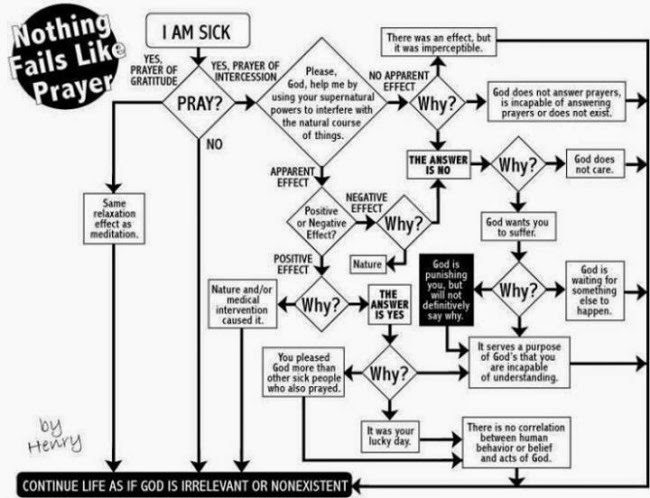





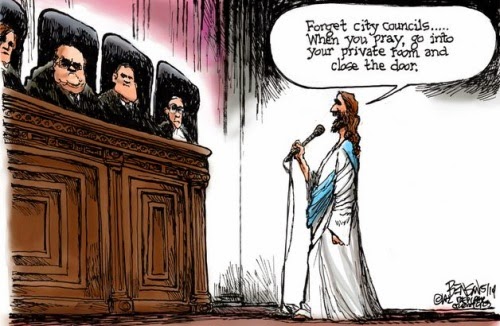




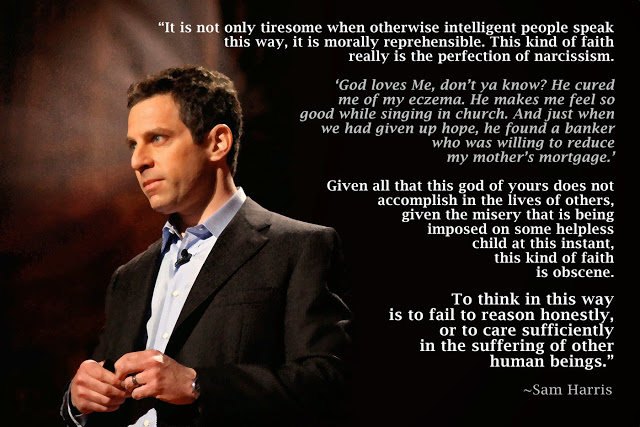
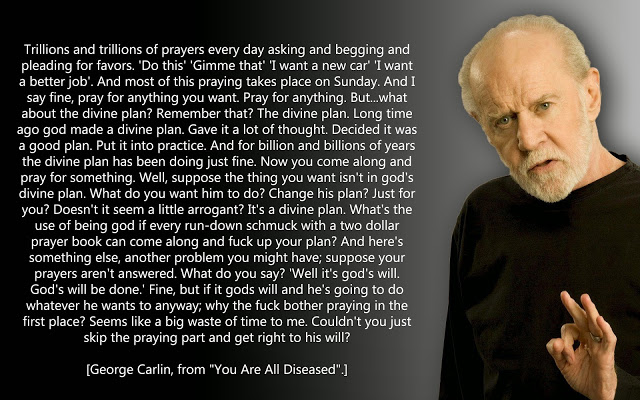

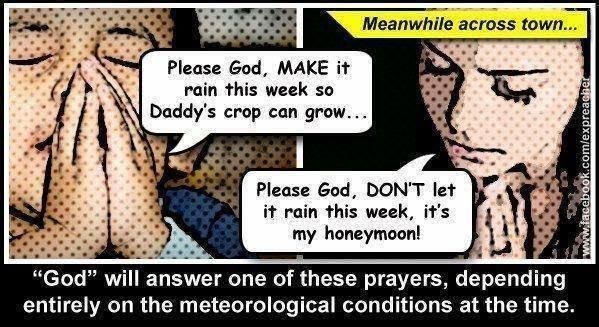

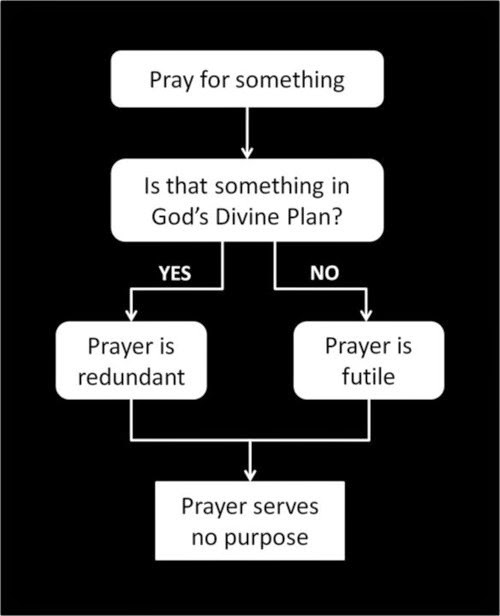



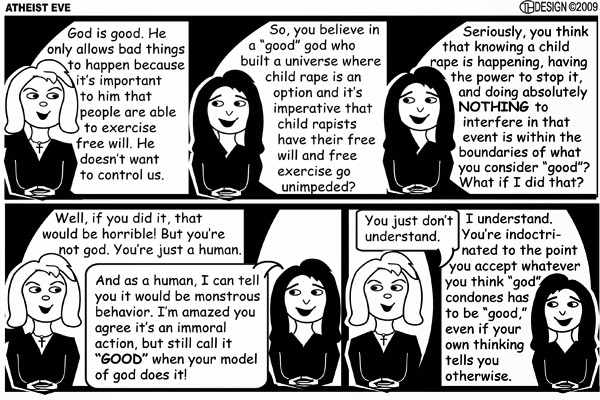
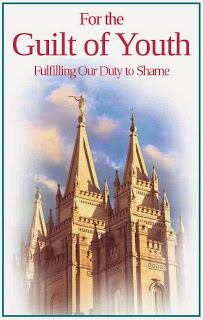

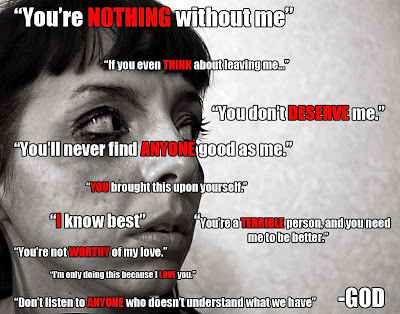


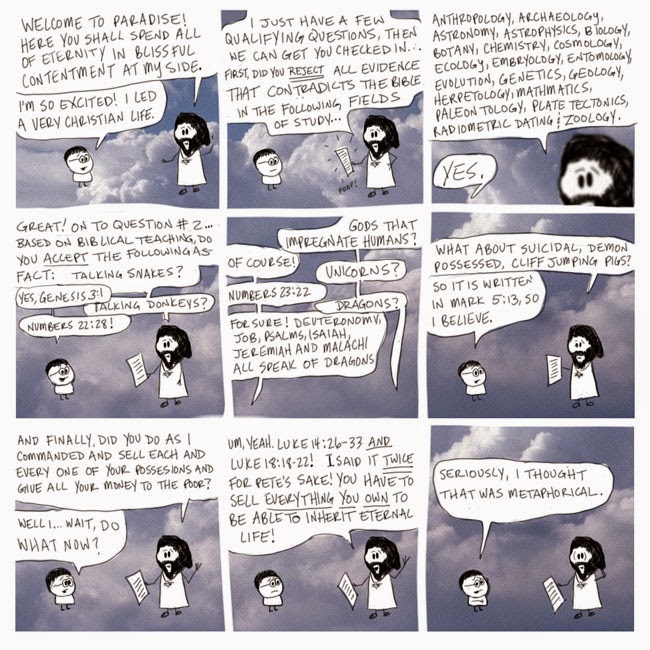





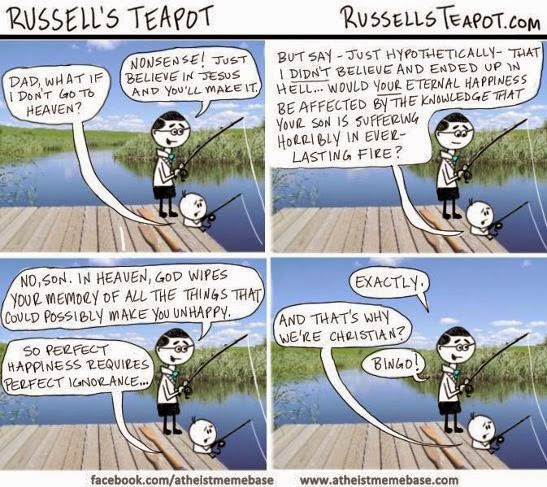

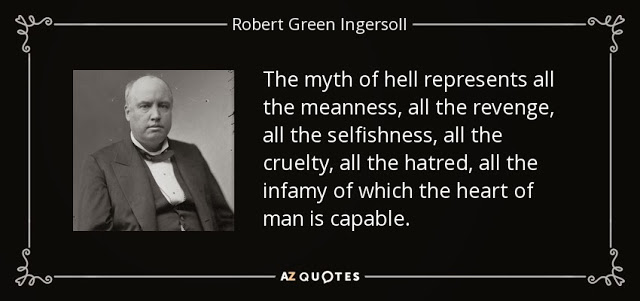






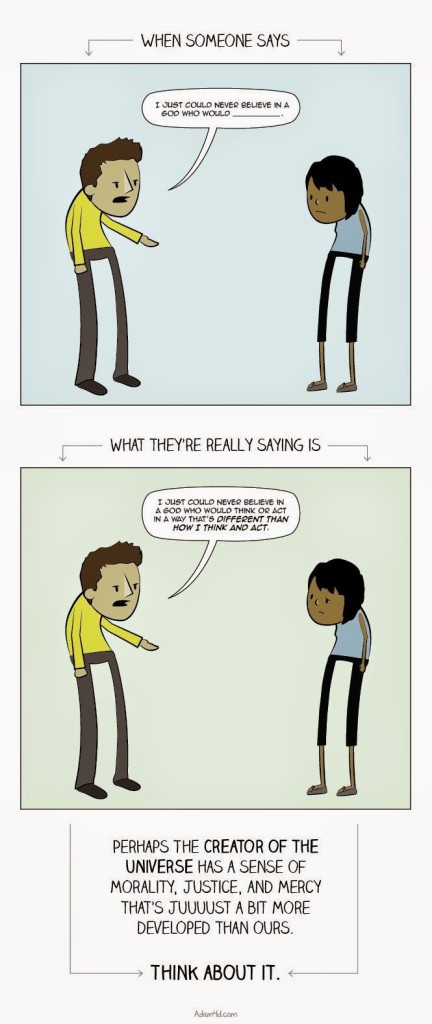




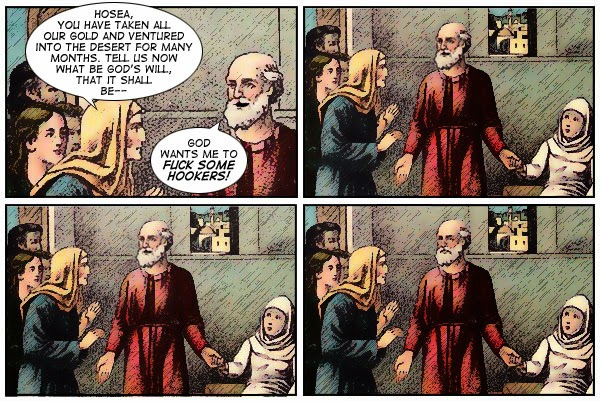
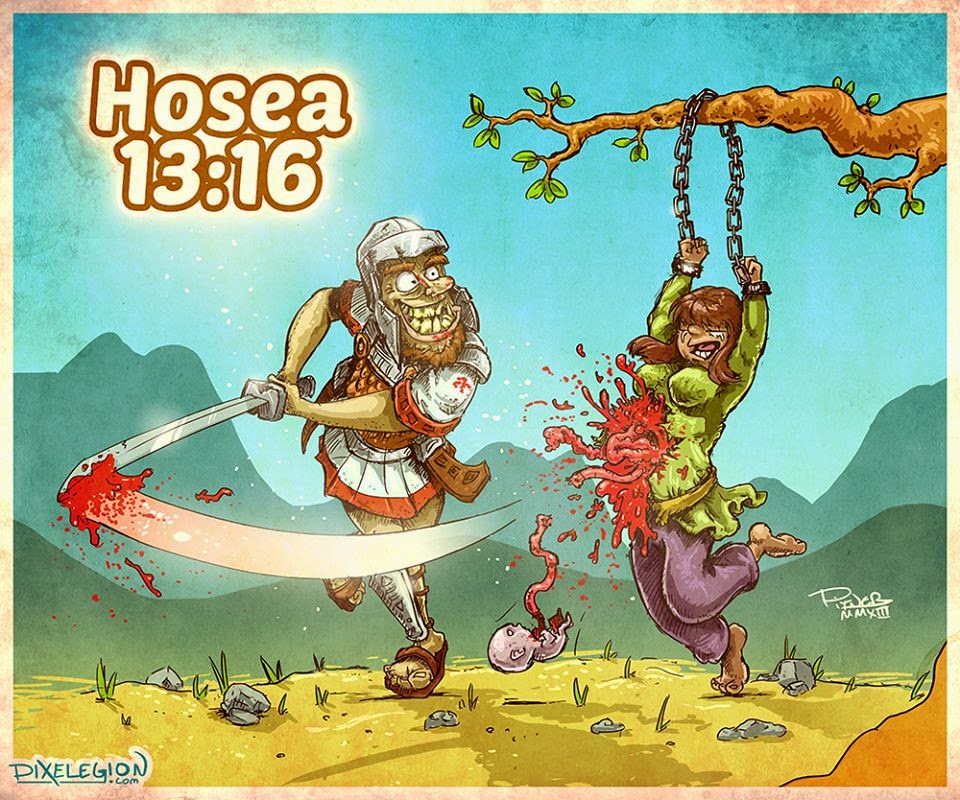
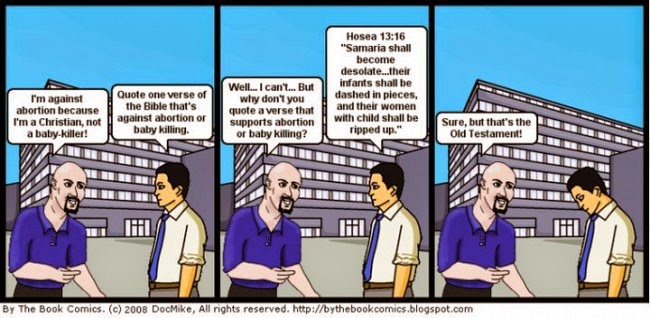


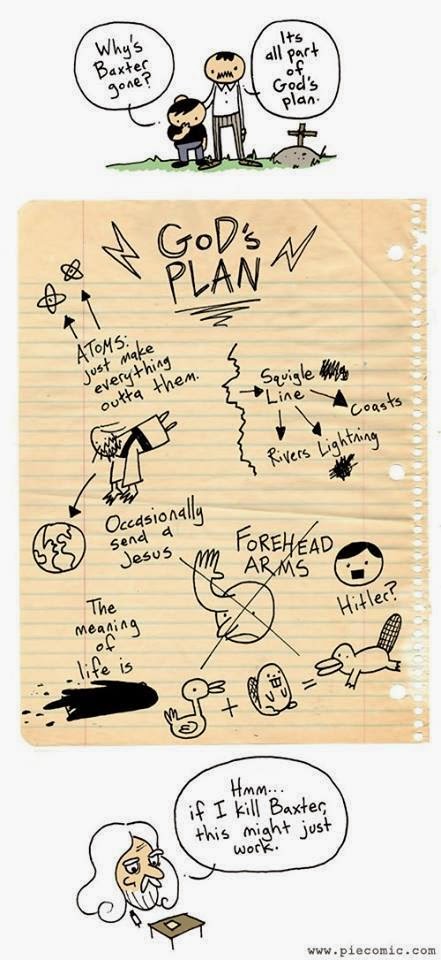

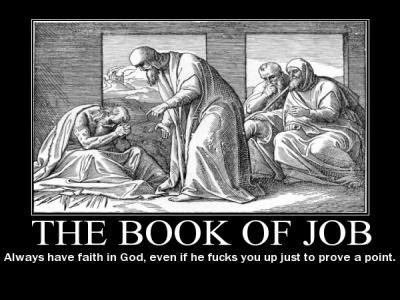
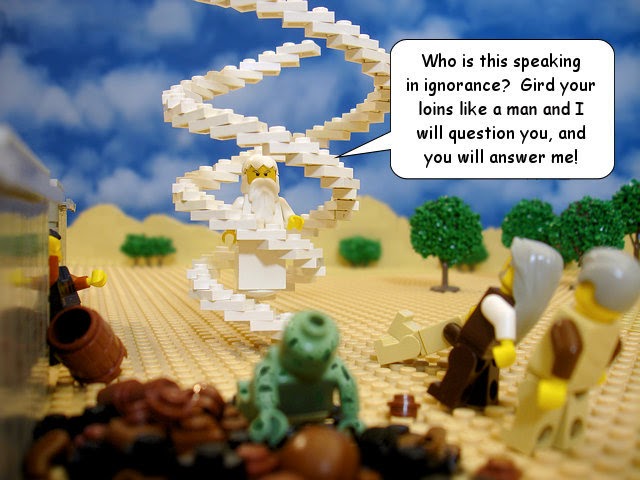
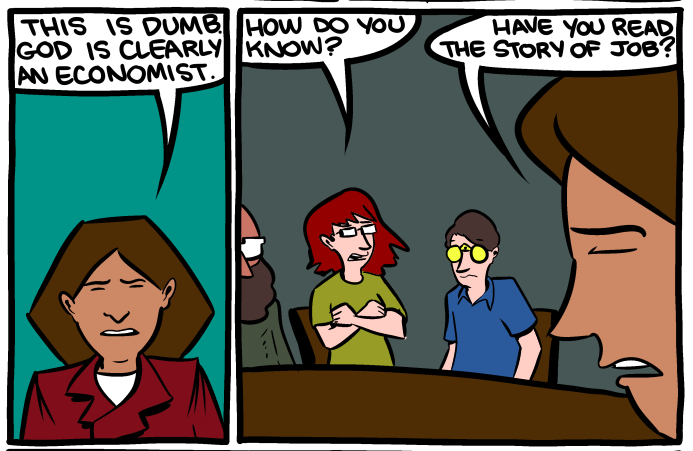
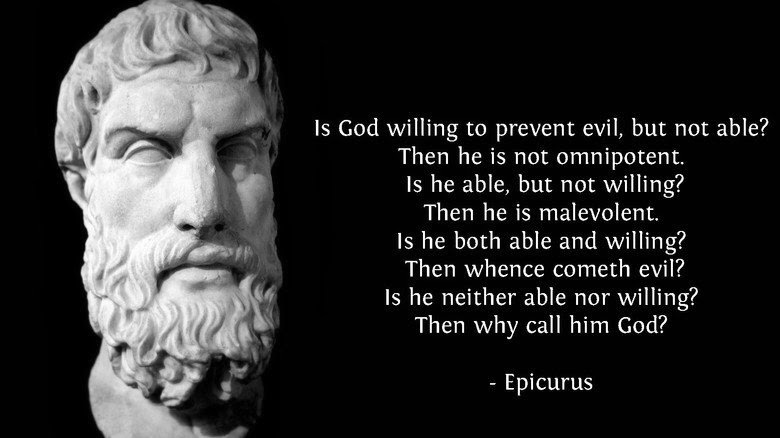


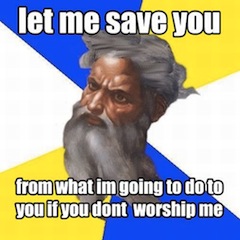
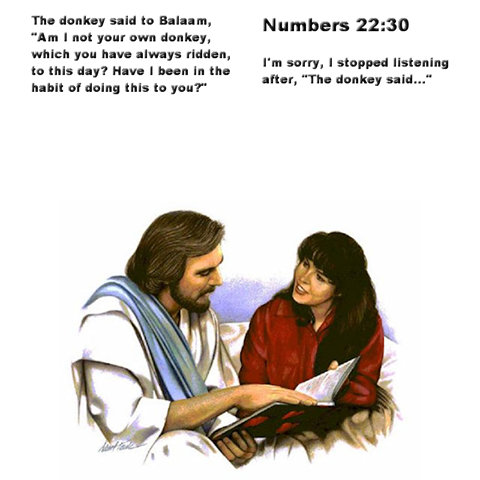

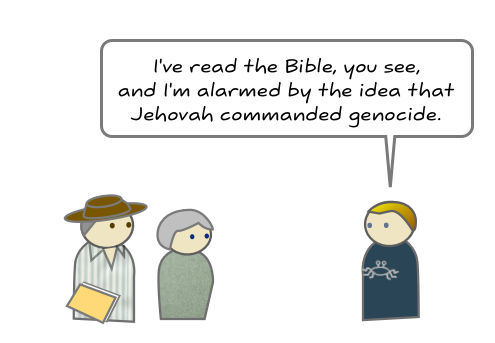

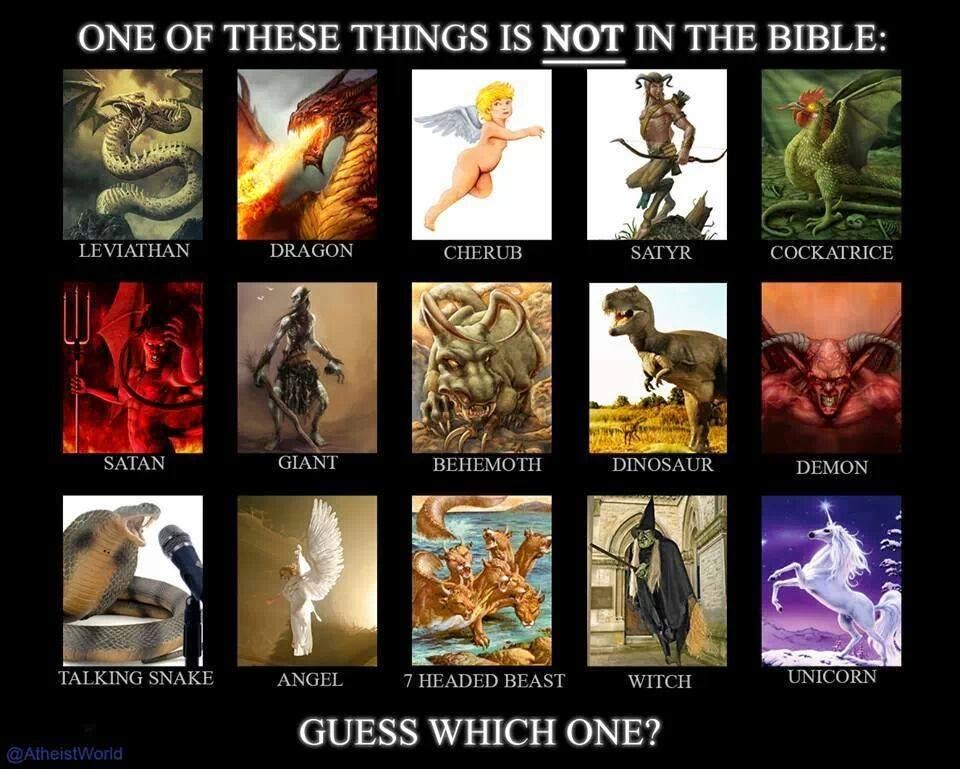






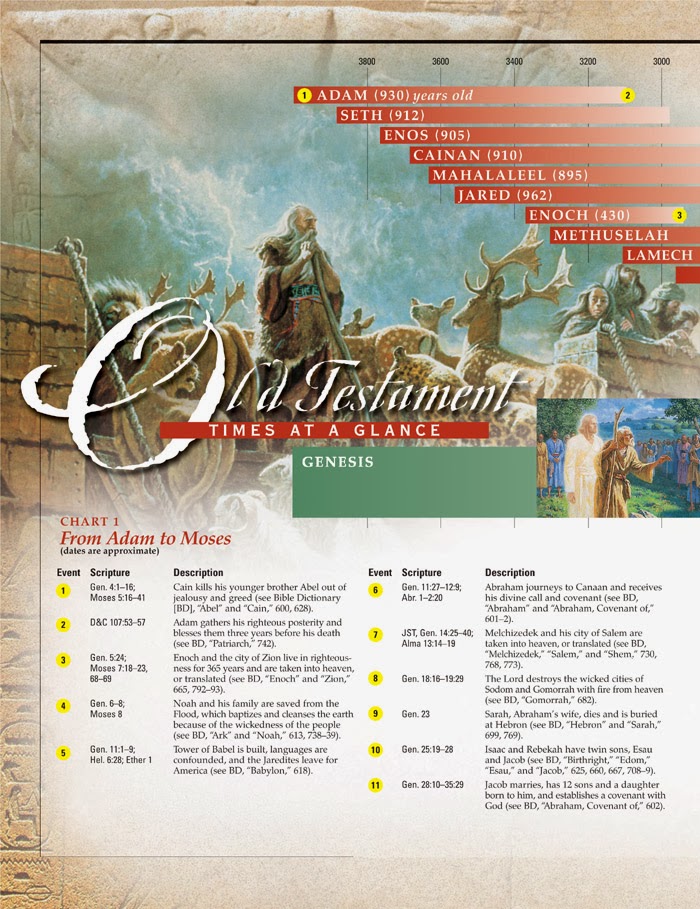
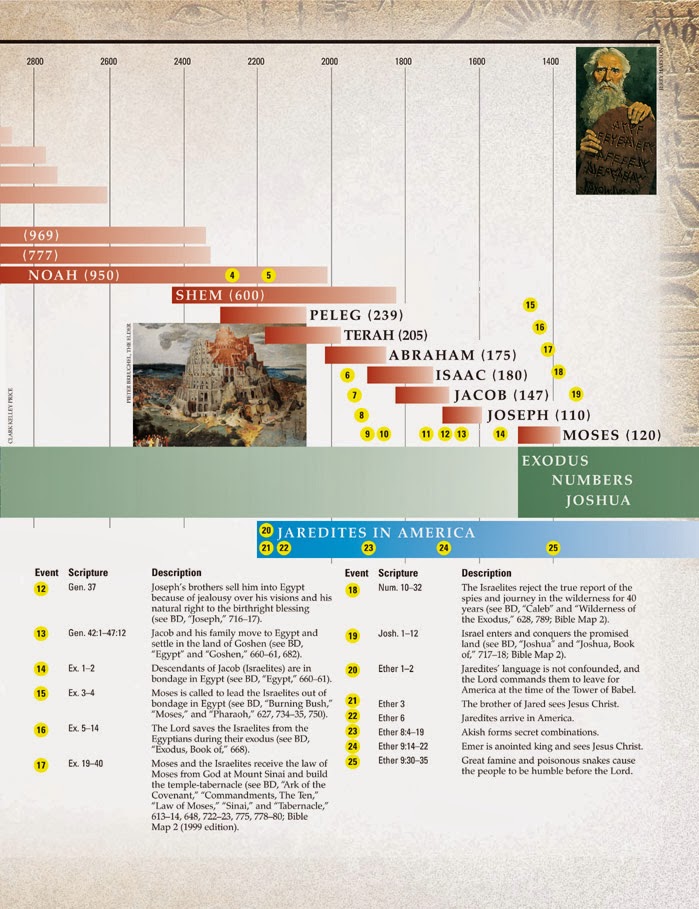


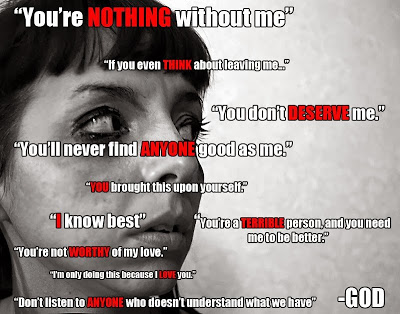
Recent Comments